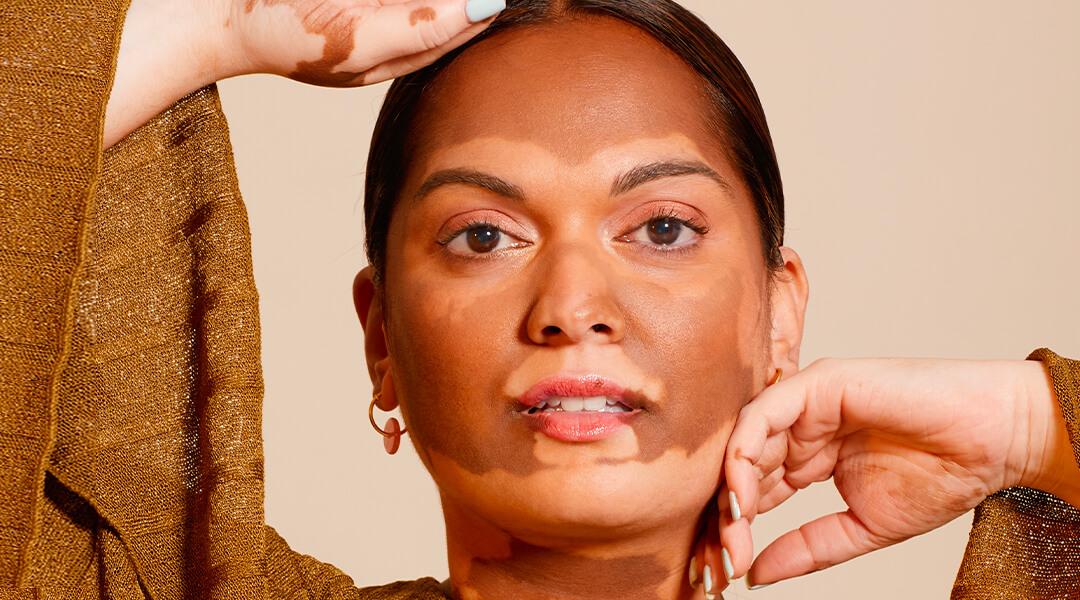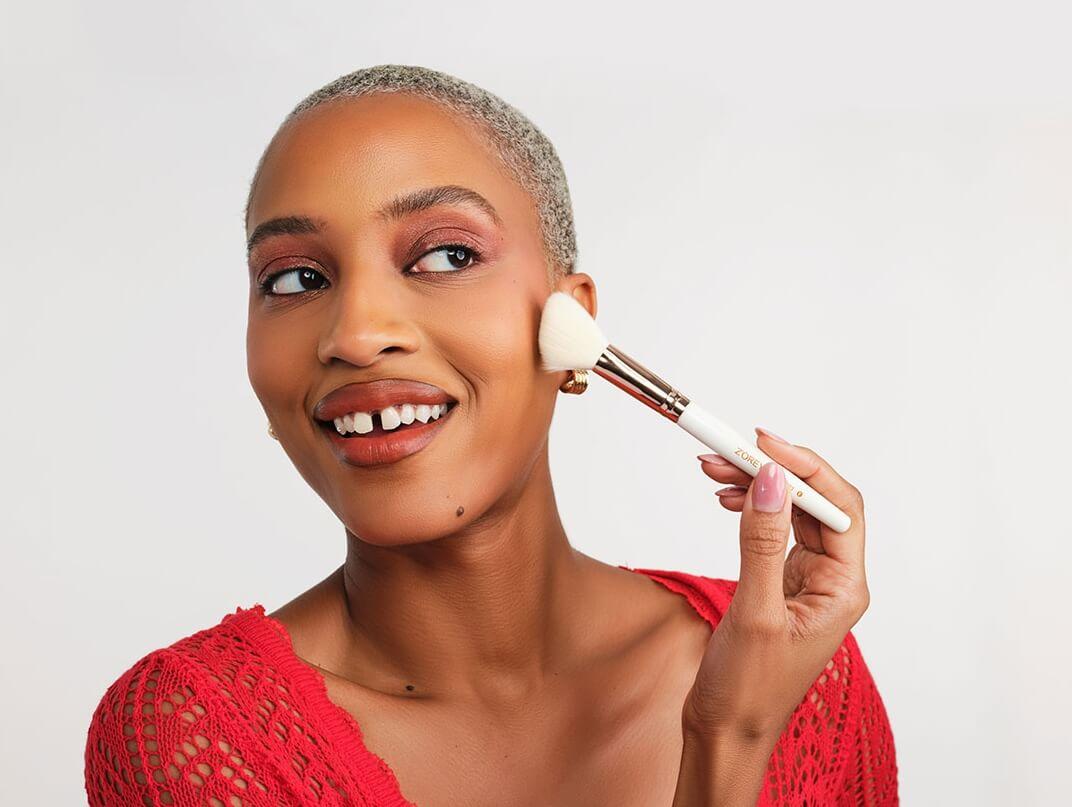7 Expert-Backed Hacks to Fix Your Skin Barrier



Maya Ernest


No matter how extra (or chill) your skincare routine is, taking care of your skin barrier is non-negotiable. Your skin's outer layers are like the squad that keeps everything in check—helping you hold onto moisture and those key ingredients like ceramides, cholesterol, and fatty acids. Without them, your skin’s more vulnerable to external aggressors—pollution, stress, and sun exposure—that can mess up your glow. “Your skin barrier is your first line of defense, protecting your skin’s health beyond just the glow,” says dermatologist Cristina Soare, MD.
But it’s not just about having a flawless skincare routine. Your skin’s barrier can get damaged by over-washing, over-exfoliating, and over-use of potent ingredients (hello, AHAs and retinoids). Basically, skin barrier damage is everywhere. So, we asked the experts how to spot it—and, more importantly, how to repair your skin barrier. Keep reading for all the pro tips on how to get your skin back to glowing, healthy perfection.
It's about glam time you treated yourself.
Join IPSY

MEET THE EXPERT
Cristina Soare, MD, is a board-certified medical and cosmetic dermatologist.
How to Know If Your Skin Barrier Is Damaged
If your skin feels dry or tight, chances are you might be experiencing an impaired skin barrier. Other signs to look for include acne, rosacea, and eczema—basically, any sensitive area of skin that feels inflamed or irritated. Skin may appear more red or darker than normal, and itchiness is another common symptom.
“When the skin barrier is compromised, the effects become noticeable through various symptoms, including increased sensitivity, flaky skin, and delayed healing,” says Dr. Soare. Make sure to monitor changes in your skin texture, since rough patches and bumps are also signs of a damaged skin barrier. Those with sensitive skin or more mature skin should take extra care, as they’re more likely to experience an impaired skin barrier.
7 Tips to Repair Your Skin Barrier
1. Simplify Your Skincare
A complex skincare routine could be doing you more harm than good, so it’s best to strip back on products, at least while figuring out what’s irritating your skin. Think: a basic cleanser, moisturizer, and SPF—that’s it. “Avoid harsh active ingredients and focus on hydrating and barrier-repairing ingredients, like ceramides and hyaluronic acid,” Dr. Soare says. “Choose non-foaming, fragrance-free cleansers and wash with lukewarm water to avoid further damage.”
2. Keep It Gentle
While you’re simplifying your skincare routine, make sure to cut out any physical exfoliants, like rough face cloths or scrubs. And while we understand wanting to be thorough, be gentle when cleaning your face, and use lukewarm water to soothe your skin. “Pause exfoliation to allow the skin to heal, then reintroduce it slowly in lower concentrations,” says Dr. Soare. Take note of how your skin responds to treatments.
3. Invest in Nourishing Products
You can comfort an irritated skin barrier with the right ingredients. Look for ceramide-rich moisturizers and incorporate hyaluronic acid into your routine to soothe and hydrate the skin. Dr. Soare also recommends using products with calming ingredients like niacinamide, panthenol, and aloe vera to support healing. We love DERMALACTIVES Purifying Triple Power Collagen Moisturizer, which also helps shield your skin from environmental stress, boost collagen, and speed up cell renewal.
4. Listen to Your Skin
Regardless of the current state of your skin, listen to what it’s telling you. Try to avoid anything that’s triggered irritation in the past, and always keep tabs on how your skin feels after incorporating something new into your routine. Skincare is all about moderation and balance, so be patient when trying new products and give your skin time to adjust. “Always test new products on a small area of skin before applying them more broadly,” adds Dr. Soare. Irritated and sensitive skin stressing you out? TATCHA Indigo Overnight Cream allows you to sleep on it while it goes into repair mode overnight. Need extra TLC in the morning? Pop a layer of VOLITION BEAUTY Snow Mushroom Water Primer under your makeup. This magical primer uses snow mushroom, aka nature's sponge, to hold 500 times its weight in water, creating a flawlessly smooth canvas for your skin while helping to plump and rehydrate your skin.
5. Stay Hydrated
“Drink plenty of water and consider using a humidifier to support skin hydration from within,” says Dr. Soare. As much as ingredients like ceramides and hyaluronic acid moisturize your skin, staying hydrated is just as (if not more) important. Consider keeping a water bottle handy, or take a steamy shower to create a humid environment.
6. Lead a Healthy Lifestyle
Ultimately, your skin health comes down to your general health. Leading a balanced lifestyle is key to healing your skin barrier and preventing future problems. To see a difference in your skin’s resilience, make sure to prioritize sleep, since that’s when your skin’s natural repairing and rebuilding processes peak. Plus, you can incorporate rich, fatty foods (like nuts, fruit, and fish) into your diet or look into taking a high-quality omega oil supplement—both will help keep your skin barrier happy and healthy. Smoking and stress are two big factors that contribute to a damaged skin barrier, so try to avoid either when possible.
7. Be Patient
All good things come to those who wait, and that applies to your skin too. “Skin barrier repair takes time, often requiring several days, to a couple of weeks, depending on the severity of the damage,” says Dr. Soare. “Consistency and patience are key to restoring and strengthening your skin’s natural defense system over time.” Glowing, healthy skin doesn’t just appear overnight (as much as we keep hoping it will), so don’t worry if results take time.
Liked this post? Share!
Related Stories


Try January
Easy Self-Care Tips That Make the Biggest Difference
Published on Jan 16, 2026 • 12 min read


Try January
Meet Try January, the 31-Day Beauty Challenge You’ll Actually Want to Keep
Published on Dec 22, 2025 • 3 min read


Try January
Skincare in 2026 Is All About Working Smarter, Not Harder
Published on Dec 19, 2025 • 7 min read


Try January
2026’s Biggest Makeup Trends Are a Maximalist Dream
Published on Dec 19, 2025 • 8 min read


Try January
Try One of These 12 Skin Tints to Show Off Your Natural Glow
Published on Jan 25, 2025 • 4 min read


Try January
Enter Your Blush Era With These 14 Gorgeous Blushes for Every Skin Tone
Published on Mar 19, 2025 • 3 min read


Try January
Hair Cycling Is TikTok’s Latest Craze—Here’s How to Do It From the Pros!
Published on May 20, 2025 • 4 min read


Try January
Here’s How to Nail TikTok’s “Contrast Theory” Makeup Trend
Published on Dec 14, 2025 • 4 min read


Beauty Picked Just for You
Get 5 products worth up to $70
Plus exclusive access to epic deals up to 80% off
Starting at just $14/month. Cancel anytime.